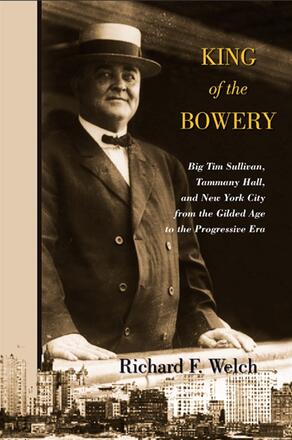
King of the Bowery
Big Tim Sullivan, Tammany Hall, and New York City from the Gilded Age to the Progressive Era
Alternative formats available from:
The first full-length biography of Timothy D. "Big Tim" Sullivan, who dominated New York City politics in the three decades prior to World War I.
Description
King of the Bowery is the first full-length biography of Timothy D. "Big Tim" Sullivan, the archetypal Tammany Hall leader who dominated New York City politics—and much of its social life—from 1890 to 1913. A poor Irish kid from the Five Points who rose through ambition, shrewdness, and charisma to become the most powerful single politician in New York, Sullivan was quick to perceive and embrace the shifting demographics of downtown New York, recruiting Jewish and Italian newcomers to his largely Irish machine to create one of the nation's first multiethnic political organizations. Though a master of the personal, paternalistic, and corrupt politics of the late nineteenth century, Sullivan paradoxically embraced a variety of progressive causes, especially labor and women's rights, anticipating many of the policies later pursued by his early acquaintances and sometimes antagonists Al Smith and Franklin D. Roosevelt. Drawing extensively on contemporary sources, King of the Bowery offers a rich, readable, and authoritative potrayal of Gotham on the cusp of the modern age, as refracted through the life of a man who exemplified much of it.
". .. a necessary book for anyone unsatisfied by the usual histories of Irish-American urban political machines. . .. The Irish-American boss has rarely been awarded the careful appraisal of the kind that Welch . .. gives Sullivan. . .. But caveat lector: you don't have to be Irish American or a New Yorker or a Democrat to enjoy this book. All you have to be is interested in a well-told story that is also a first-rate work of history. " — Peter Quinn, Commonweal